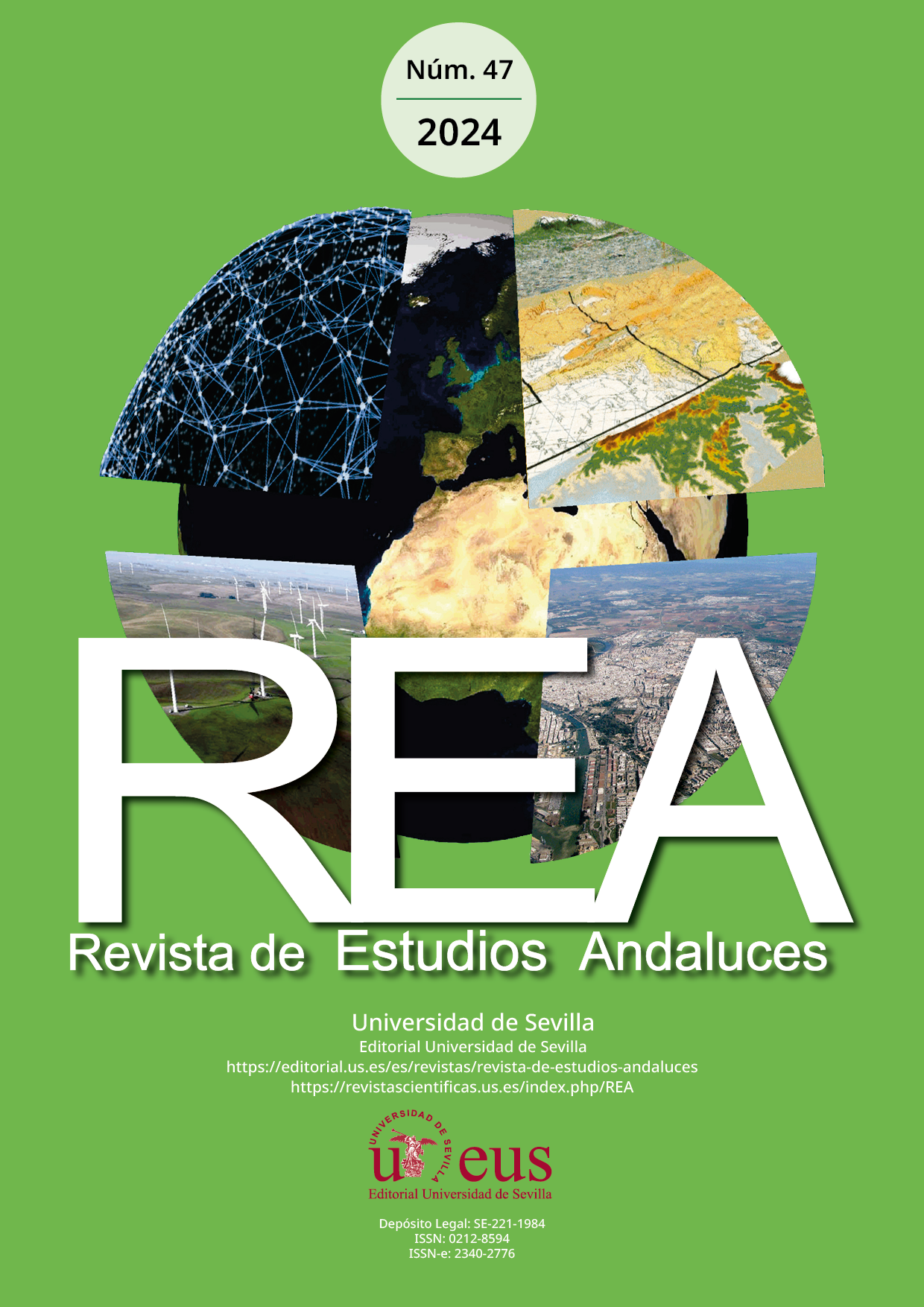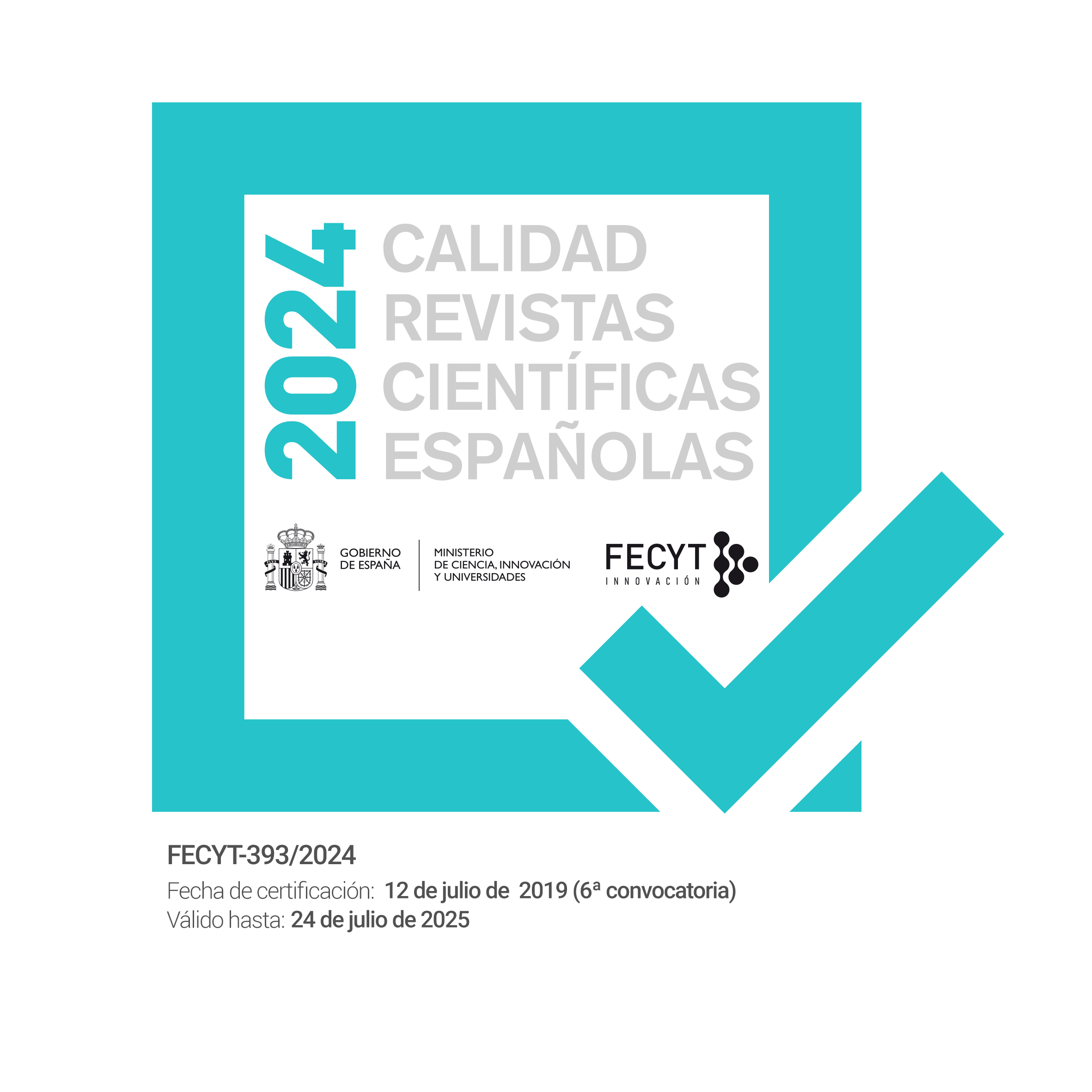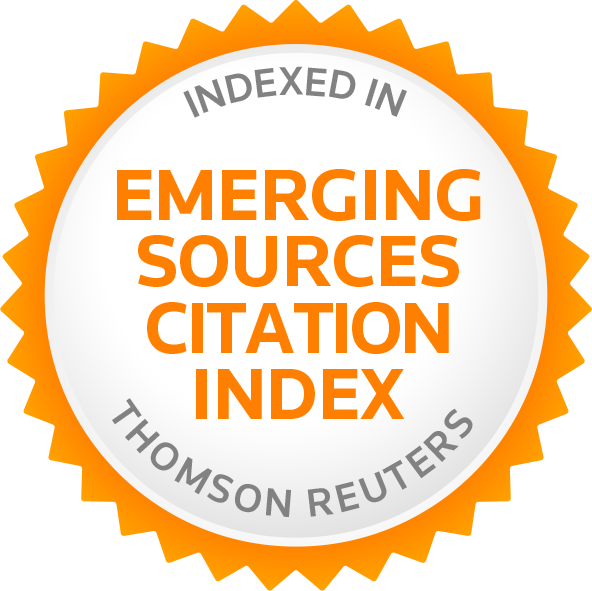Criterios de aceptación del vehículo eléctrico por parte de la población española menor de 45 años
DOI:
https://doi.org/10.12795/rea.2024.i47.08Palabras clave:
Vehículos eléctricos, Sector de automoción, Sostenibilidad, Movilidad, Adultos jóvenes, Conciencia ambiental, AceptaciónResumen
El objetivo de este estudio es el análisis del posicionamiento general de la población española menor de 45 años (adultos jóvenes) en cuanto a la aceptación de los vehículos eléctricos. Se ha utilizado metodología cuantitativa (a partir de datos de una encuesta) y cualitativa (entrevistas semiestructuradas a profesionales del sector). A pesar de que la mayor parte de los participantes manifiesta estar concienciado con el medio ambiente, sólo un 29,4% estaría interesado en adquirir un vehículo eléctrico, siendo su alto precio la mayor barrera. Se concluye que los vehículos eléctricos serán la opción de movilidad predominante en el futuro, aunque actualmente no lo son, principalmente entre la población más joven. En todo caso, el interés por el vehículo eléctrico es diferente en función del género, nivel de estudios y frecuencia de cambio de vehículo.
Financiación
Esta investigación ha sido financiada con fondos del Grupo de Investigación “Sistemas Innovadores de Monetización en Periodismo y Marketing Digital” (SIMPED) de la Escuela Universitaria Mediterrani de Barcelona, centro adscrito a la Universidad de Girona (UdG).
Descargas
Citas
Ajanovic, A., & Haas, R. (2019). On the environmental benignity of electric vehicles. Journal of Sustainable Development of Energy, Water and Environment Systems, 7(3), 416-431. https://doi.org/10.13044/j.sdewes.d6.0252.
Axsen, J., Cairns, J., Dusyk, N., & Goldberg, S. (2018). What drives the Pioneers? Applying lifestyle theory to early electric vehicle buyers in Canada. Energy Research & Social Science, 44, 17-30. https://doi.org/10.1016/j.erss.2018.04.015
Bobeth, S., & Kastner, I. (2020). Buying an electric car: A rational choice or a norm-directed behavior? Transportation Research Part F: Traffic Psychology and Behaviour, 73, 236-258. https://doi.org/10.1016/j.trf.2020.06.009
Bolaños-Sánchez, V. H., Ortega-Garnelo, F., & Reyes-Baza, D. (2015). Medio ambiente, ciencia y sociedad. Andamios, 12(29), 7-14. https://cutt.ly/f5aqTTT
Braçe, O. (2018). Efectos de la expansión urbana en la elección de los modos de transporte utilizados para los desplazamientos diarios en áreas metropolitanas. Un estudio de caso. Revista de Estudios Andaluces, (36), 208-221. https://dx.doi.org/10.12795/rea.2018.i36.09
Broadbent, G. H., Metternicht, G., & Drozdzewski, D. (2019). An analysis of consumer incentives in support of electric vehicle uptake: An Australian case study. World Electric Vehicle Journal, 10(1), 11. https://doi.org/10.3390/wevj10010011
Buhmann, K.M., & Criado, J. R. (2023). Consumers’ preferences for electric vehicles: The role of status and reputation. Transportation Research Part D: Transport and Environment, 114, 103530. https://doi.org/10.1016/j.trd.2022.103530
Buriel, Y., Gramunt-Fombuena, N., Böhm, P., Rodés, E., & Peña-Casanova, J. (2004). Fluencia verbal. Estudio normativo piloto en una muestra española de adultos jóvenes (20 a 49 años). Neurología, 19(4), 153-159. https://is.gd/roNbdx
Casals, L. C., Martinez-Laserna, E., García, B. A., & Nieto, N. (2016). Sustainability analysis of the electric vehicle use in Europe for CO2 emissions reduction. Journal of Cleaner Production, 127, 425-437. https://doi.org/10.1016/j.jclepro.2016.03.120
Capuder, T., Sprčić, D. M., Zoričić, D., & Pandžić, H. (2020). Review of challenges and assessment of electric vehicles integration policy goals: Integrated risk analysis approach. International Journal of Electrical Power & Energy Systems, 119, 105894. https://doi.org/10.1016/j.ijepes.2020.105894
Cebollada, À., Badía, A., & Vera, A. (2020). Movilidad cotidiana y cambio modal en zonas urbanas de baja densidad. Estudio de caso en la región metropolitana de Barcelona. Revista de Estudios Andaluces, (39), 94-113. https://doi.org/10.12795/rea.2020.i39.05
Chakraborty, P., Parker, R., Hoque, T., Cruz, J., Du, L., Wang, S., & Bhunia, S. (2022). Addressing the range anxiety of battery electric vehicles with charging en route. Scientific Reports, 12(1), 5588. https://doi.org/10.1038/s41598-022-08942-2
Challa, R., Kamath, D., & Anctil, A. (2022). Well-to-wheel greenhouse gas emissions of electric versus combustion vehicles from 2018 to 2030 in the US. Journal of Environmental Management, 308, 114592. https://doi.org/10.1016/j.jenvman.2022.114592
Chen, C.F., Zarazua-de-Rubens, G., Noel, L., Kester, J., & Sovacool, B.K. (2020). Assessing the socio-demographic, technical, economic and behavioral factors of Nordic electric vehicle adoption and the influence of vehicle-to-grid preferences. Renewable and Sustainable Energy Reviews, 121, 109692. https://doi.org/10.1016/j.rser.2019.109692
Chu, W., Im, M., Song, M.R., & Park, J. (2019). Psychological and behavioral factors affecting electric vehicle adoption and satisfaction: A comparative study of early adopters in China and Korea. Transportation Research Part D: Transport and Environment, 76, 1-18. https://doi.org/10.1016/j.trd.2019.09.009
Cecere, G., Corrocher, N., & Guerzoni, M. (2018). Price or performance? A probabilistic choice analysis of the intention to buy electric vehicles in European countries. Energy Policy, 118, 19-32. https://doi.org/10.1016/j.enpol.2018.03.034
De-Sa, A.L.S., Lavieri, P.S., Cheng, Y.T., Hajhashemi, E., & Oliveira, G.J. (2023). Modelling driver’s response to demand management strategies for electric vehicle charging in Australia. Energy Research & Social Science, 103, 103218. https://doi.org/10.1016/j.erss.2023.103218
Dulcich, F., Otero, D., & Canzian, A. (2019). Evolución reciente y situación actual de la producción y difusión de vehículos eléctricos a nivel global y en Latinoamérica. Asian Journal of Latin American Studies, 32(4), 21-51. https://bit.ly/3LlW5KP
Frías-Marín, P., & Román-Úbeda, J. (2019). Vehículo eléctrico: situación actual y perspectivas futuras. Economía Industrial, 411, 11-20. https://bit.ly/2Wg324a
Fondevila-Gascón, J.F. (2013). Periodismo ciudadano y cloud journalism: un flujo necesario en la Sociedad de la Banda Ancha. Comunicación y Hombre, 9, 25-41. https://doi.org/10.32466/eufv-cyh.2013.9.163.25-41
Ghasri, M., Ardeshiri, A., & Rashidi, T. (2019). Perception towards electric vehicles and the impact on consumers’ preference. Transportation Research Part D: Transport and Environment, 77, 271-291. https://doi.org/10.1016/j.trd.2019.11.003
Gong, S., Ardeshiri, A., & Rashidi, T. H. (2020). Impact of government incentives on the market penetration of electric vehicles in Australia. Transportation Research Part D: Transport and Environment, 83, 102353. https://doi.org/10.1016/j.trd.2020.102353
Gulzari, A., Wang, Y., & Prybutok, V. (2022). A green experience with eco-friendly cars: A young consumer electric vehicle rental behavioral model. Journal of Retailing and Consumer Services, 65, 102877. https://doi.org/10.1016/j.jretconser.2021.102877
Gutiérrez-Aragón, Ó., Fondevila-Gascón, J.F., & Mir-Bernal, P. (2019). Análisis de la viabilidad de la utilización de índices comerciales de concesionarios de automóviles como indicadores predictores de crisis económicas: estudio de caso comparativo de doble entrada. Cuadernos de Economía, 42(119), 153-172. https://doi.org/10.32826/cude.v42i119.70
Gutiérrez-Aragón, Ó., Fondevila-Gascón, J.F., Rovira-Pérez, M., & Rubio-Álvarez, A. (2022). Diferencias de género en la percepción del reggaetón en el público millennial y centennial y en trabajadores jóvenes de la industria. Ámbitos, Revista Internacional de Comunicación, 57, 171-191. http://dx.doi.org/10.12795/Ambitos.2022.i57.10
Gutiérrez-Aragón, Ó., Gassiot-Melian, A., & Martín-Guerrero, L. (2023). Impacto del turismo deportivo sobre la masa social y la economía de un club de fútbol. El caso del F.C. Barcelona. Investigaciones Turísticas, 26, 183-206. https://doi.org/10.14198/INTURI.23073
Habich-Sobiegalla, S., Kostka, G., & Anzinger, N. (2018). Electric vehicle purchase intentions of Chinese, Russian and Brazilian citizens: An international comparative study. Journal of Cleaner Production, 205, 188-200. https://doi.org/10.1016/j.jclepro.2018.08.318
Hardman, S., Chandan, A., Tal, G., & Turrentine, T. (2017). The effectiveness of financial purchase incentives for battery electric vehicles. A review of the evidence. Renewable and Sustainable Energy Reviews, 80, 1100-1111. https://doi.org/10.1016/j.rser.2017.05.255
Hardman, S., & Tal, G. (2021). Understanding discontinuance among California’s electric vehicle owners. Nature Energy, 6(5), 538-545. https://doi.org/10.1038/s41560-021-00814-9
Hasselwander, S., Galich, A., & Nieland, S. (2022). Impact of climate change on the energy consumption of passenger car vehicles. World Electric Vehicle Journal, 13(8), 146. https://doi.org/10.3390/wevj13080146
Higueras-Castillo, E., Molinillo, S., Coca-Stefaniak, J.A., & Liebana-Cabanillas, F. (2020). Potential early adopters of hybrid and electric vehicles in Spain. Towards a customer profile. Sustainability, 12(11), 4345. https://doi.org/10.3390/su12114345
Huat, O.C. (2022). Understanding Purchase Intention of Electric Vehicles (EV) among Gen-Z Users in China. Asia Pacific Journal of Business, Humanities, & Education, 6(2), 78-99. https://is.gd/tOzcXI
Hurtado-Chavez, P. (2016). Células de combustible de hidrógeno. Revista Científica Investigación Andina, 12(2), 59-64. https://bit.ly/3oDheZ9
Jasrotia, S.S., Darda, P., & Pandey, S. (2023). Changing values of millennials and centennials towards responsible consumption and sustainable society. Society and Business Review, 18(2), 244-263. https://doi.org/10.1108/SBR-01-2022-0013
Ju, N., & Kim, S.H. (2022). Electric vehicle resistance from Korean and American millennials: Environmental concerns and perception. Transportation Research Part D: Transport and Environment, 109, 103387. https://doi.org/10.1016/j.trd.2022.103387
Kim, S.Y., & Kang, M.J. (2022). A study on the factors influencing the purchase of electric vehicles. International Journal of Internet, Broadcasting and Communication, 14(1), 194-200. https://doi.org/10.7236/IJIBC.2022.14.1.194
Knez, M., Jereb, B., Jadraque-Gago, E., Rosak-Szyrocka, J., & Obrecht, M. (2021). Features influencing policy recommendations for the promotion of zero-emission vehicles in Slovenia, Spain, and Poland. Clean Technologies and Environmental Policy, 23, 749-764. https://doi.org/10.1007/s10098-020-01909-9
Kongklaew, C., Phoungthong, K., Prabpayak, C., Chowdhury, M.S., Khan, I., Yuangyai, N., Yuangyai, C., & Techato, K. (2021). Barriers to electric vehicle adoption in Thailand. Sustainability, 13(22), 12839. https://doi.org/10.3390/su132212839
Kumar, P., Singh, R., Paul, J., & Sinha, O. (2021). Analyzing challenges for sustainable supply chain of electric vehicle batteries using a hybrid approach of Delphi and Best-Worst Method. Resources Conservation and Recycling, 175, 105879. https://doi.org/10.1016/j.resconrec.2021.105879
Lai, X., Chen, Q., Tang, X., Zhou, Y., Gao, F., Guo, Y., Bhagat, R., & Zheng, Y. (2022). Critical review of life cycle assessment of lithium-ion batteries for electric vehicles: A lifespan perspective. Etransportation, 12, 100169. https://doi.org/10.1016/j.etran.2022.100169
Landrigan, P. J. (2017). Air pollution and health. The Lancet. Public Health, 2(1), e4-e5. https://doi.org/10.1016/s2468-2667(16)30023-8
Leach, F., Kalghatgi, G., Stone, R., & Miles, P. C. (2020). The scope for improving the efficiency and environmental impact of internal combustion engines. Transportation Engineering, 1, 100005. https://doi.org/10.1016/j.treng.2020.100005
Lin, B., & Wu, W. (2018). Why people want to buy electric vehicle: An empirical study in first-tier cities of China. Energy Policy, 112, 233-241. https://doi.org/10.1016/j.enpol.2017.10.026
Llanes-Cedeño, E. A., Morales-Bayetero, C. F. & Checa-Ramírez, A. E. (2021). Evaluación experimental de un motor de encendido provocado bajo diferentes gasolinas. Ingenius: Revista de Ciencia y Tecnología, 26, 17-29. https://doi.org/10.17163/ings.n26.2021.02
Llopis-Albert, C., Rubio, F., & Valero, F. (2021). Impact of digital transformation on the automotive industry. Technological Forecasting and Social Change, 162, 120343. https://doi.org/10.1016/j.techfore.2020.120343
Manfreda, A., Ljubi, K., & Groznik, A. (2021). Autonomous vehicles in the smart city era: An empirical study of adoption factors important for millennials. International Journal of Information Management, 58, 102050. https://doi.org/10.1016/j.ijinfomgt.2019.102050
Martín-Moreno, F. (2016). Vehículos eléctricos. Historia, estado actual y retos futuros. European Scientific Journal, Special, 118-131. https://is.gd/vBzhbK
Martínez-Lao, J., Manzano-Agugliaro, F., & Montoya, M. (2017). Electric vehicles in Spain: An overview of charging systems. Renewable & Sustainable Energy Reviews, 77, 970-983. https://doi.org/10.1016/j.rser.2016.11.239
Mesarić, P., & Krajcar, S. (2015). Home demand side management integrated with electric vehicles and renewable energy sources. Energy and Buildings, 108, 1-9. https://doi.org/10.1016/j.enbuild.2015.09.001
Mondragón, F. (2021). Ciclos del dióxido de carbono en la formación y utilización de combustibles fósiles y su efecto en el cambio climático. Revista de la Academia Colombiana de Ciencias Exactas, Físicas y Naturales, 45(176), 833-849. https://doi.org/10.18257/raccefyn.1364
Mukherjee, S.C., & Ryan, L. (2020). Factors influencing early battery electric vehicle adoption in Ireland. Renewable and Sustainable Energy Reviews, 118, 109504. https://doi.org/10.1016/j.rser.2019.109504
Münzel, C., Plötz, P., Sprei, F., & Gnann, T. (2019). How large is the effect of financial incentives on electric vehicle sales? A global review and European analysis. Energy Economics, 84, 104493. https://doi.org/10.1016/j.eneco.2019.104493
Nategh, S., Boglietti, A., Liu, Y., Barber, D., Brammer, R., Lindberg, D., & Aglen, O. (2020). A review on different aspects of traction motor design for railway applications. IEEE Transactions on Industry Applications, 56(3), 2148-2157. https://doi.org/10.1109/TIA.2020.2968414
Nosi, C., Pucci, T., Silvestri, C., & Aquilani, B. (2017). Does value co-creation really matter? An investigation of Italian millennials intention to buy electric cars. Sustainability, 9(12), 2159. https://doi.org/10.3390/su9122159
Parker, N., Breetz, H. L., Salon, D., Conway, M., Williams, J. J., & Patterson, M. (2021). Who saves money buying electric vehicles? Heterogeneity in total cost of ownership. Transportation Research Part D, Transport and Environment, 96, 102893. https://doi.org/10.1016/j.trd.2021.102893
Peters, A.M., Van-der-Werff, E., & Steg, L. (2018). Beyond purchasing: Electric vehicle adoption motivation and consistent sustainable energy behaviour in The Netherlands. Energy Research & Social Science, 39, 234-247. https://doi.org/10.1016/j.erss.2017.10.008
Priessner, A., Sposato, R., & Hampl, N. (2018). Predictors of electric vehicle adoption: An analysis of potential electric vehicle drivers in Austria. Energy Policy, 122, 701-714. https://doi.org/10.1016/j.enpol.2018.07.058
Rajaeifar, M.A., Ghadimi, P., Raugei, M., Wu, Y., & Heidrich, O. (2022). Challenges and recent developments in supply and value chains of electric vehicle batteries: A sustainability perspective. Resources, Conservation and Recycling, 180, 106144. https://doi.org/10.1016/j.resconrec.2021.106144
Reinhardt, R., Christodoulou, I., Gassó-Domingo, S., & García, B.A. (2019). Towards sustainable business models for electric vehicle battery second use: A critical review. Journal of Environmental Management, 245, 432-446. https://doi.org/10.1016/j.jenvman.2019.05.095
Rodrigues-Teixeira, A.C., & Sodré, J. R. (2018). Impacts of replacement of engine powered vehicles by electric vehicles on energy consumption and CO2 emissions. Transportation Research Part D: Transport and Environment, 59, 375-384. https://doi.org/10.1016/j.trd.2018.01.004
Sahoo, D., Harichandan, S., Kar, S.K., & Sreejesh, S. (2022). An empirical study on consumer motives and attitude towards adoption of electric vehicles in India: Policy implications for stakeholders. Energy Policy, 165, 112941. https://doi.org/10.1016/j.enpol.2022.112941
Serrano, J.R., Novella, R., & Piqueras, P. (2019). Why the development of internal combustion engines is still necessary to fight against global climate change from the perspective of transportation. Applied Sciences, 9(21), 4597. https://doi.org/10.3390/app9214597
She, Z. Y., Sun, Q., Ma, J.J., & Xie, B.C. (2017). What are the barriers to widespread adoption of battery electric vehicles? A survey of public perception in Tianjin, China. Transport Policy, 56, 29-40. https://doi.org/10.1016/j.tranpol.2017.03.001
Singh, K.N., Bansal, H.O., & Singh, D. (2019). A comprehensive review on hybrid electric vehicles: architectures and components. Journal of Modern Transportation, 27(2), 77-107. https://doi.org/10.1007/s40534-019-0184-3
Sovacool, B.K., Abrahamse, W., Zhang, L., & Ren, J. (2019). Pleasure or profit? Surveying the purchasing intentions of potential electric vehicle adopters in China. Transportation Research Part A: Policy and Practice, 124, 69-81. https://doi.org/10.1016/j.tra.2019.03.002
Srivastava, A., Kumar, R.R., Chakraborty, A., Mateen, A., & Narayanamurthy, G. (2022). Design and selection of government policies for electric vehicles adoption: A global perspective. Transportation Research Part E: Logistics and Transportation Review, 161, 102726. https://doi.org/10.1016/j.tre.2022.102726
Sun, W., Zou, Y., Zhang, X., Guo, N., Zhang, B., & Du, G. (2022). High robustness energy management strategy of hybrid electric vehicle based on improved soft actor-critic deep reinforcement learning. Energy, 124806. https://doi.org/10.1016/j.energy.2022.124806
Thananusak, T., Rakthin, S., Tavewatanaphan, T., & Punnakitikashem, P. (2017). Factors affecting the intention to buy electric vehicles: empirical evidence from Thailand. International Journal of Electric and Hybrid Vehicles, 9(4), 361. https://doi.org/10.1504/ijehv.2017.089875
Tu, J., & Yang, C. (2019). Key factors influencing consumers’ purchase of electric vehicles. Sustainability, 11(14), 3863. https://doi.org/10.3390/su11143863
Wang, S., Li, J., Wang, J., & Liang, L. (2018). Policy implications for promoting the adoption of electric vehicles: Do consumer’s knowledge, perceived risk and financial incentive policy matter? Transportation Research Part A-policy and Practice, 117, 58-69. https://doi.org/10.1016/j.tra.2018.08.014
Wang, L., Wang, X., & Yang, W. (2020). Optimal design of electric vehicle battery recycling network. From the perspective of electric vehicle manufacturers. Applied Energy, 275, 115328. https://doi.org/10.1016/j.apenergy.2020.115328
Welsby, D., Price, J., Pye, S. & Ekins, P. (2021). Unextractable fossil fuels in a 1.5° C world. Nature, 597(7875), 230-234. https://doi.org/10.1038/s41586-021-03821-8
Wu, J., Liao, H., & Wang, J. (2020). Analysis of consumer attitudes towards autonomous, connected, and electric vehicles: A survey in China. Research in Transportation Economics, 80, 100828. https://doi.org/10.1016/j.retrec.2020.100828
Yadlapalli, R.T., Kotapati, A., Kandipati, R., & Koritala, C.S. (2022). A review on energy efficient technologies for electric vehicle applications. Journal of Energy Storage, 50, 104212. https://doi.org/10.1016/j.est.2022.104212
Yang, C., Che-Tu J., & Jiang Q. (2020). The influential factors of consumers’ sustainable consumption: A case on electric vehicles in China. Sustainability, 12(8), 3496. https://doi.org/10.3390/su12083496
Zhao X., Ma Y., Shao S., & Ma T. (2022). What determines consumers’ acceptance of electric vehicles: A survey in Shanghai, China. Energy Economics, 108, 105805. https://doi.org/10.1016/j.eneco.2021.105805
Publicado
Cómo citar
Número
Sección
Licencia
Derechos de autor 2024 Revista de Estudios Andaluces

Esta obra está bajo una licencia internacional Creative Commons Atribución-NoComercial-CompartirIgual 4.0.
La edición electrónica de la Revista de Estudios Andaluces se ofrece en acceso abierto desde el número 28 publicado en 2011 hasta la actualidad. Las ediciones impresa y electrónica de esta Revista son editadas por la Editorial de la Universidad de Sevilla, siendo necesario citar la procedencia en cualquier reproducción parcial o total.
La Revista de Estudios Andaluces no cobra tasas por el envío de trabajos, ni tampoco cuotas por la publicación de sus artículos. La Revista es gratuita desde el momento de la publicación de cada número y sus contenidos se distribuyen con la licencia “CreativeCommons Atribución-NoComercial-SinDerivar 4.0 Internacional” , que permite al usuario de la Revista de Estudios Andaluces criterios que cumplen con la definición de open access de la Declaración de Budapest en favor del acceso abierto. Puede consultar desde aquí la versión informativa y el texto legal de la licencia. Esta circunstancia ha de hacerse constar expresamente de esta forma cuando sea necesario.







